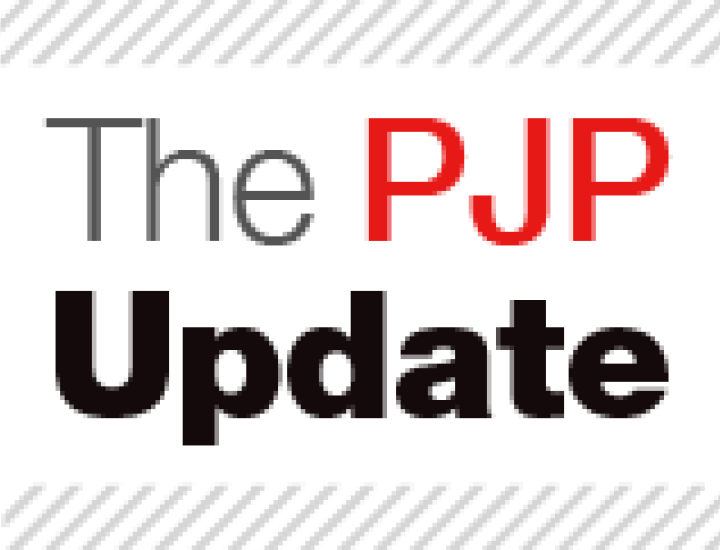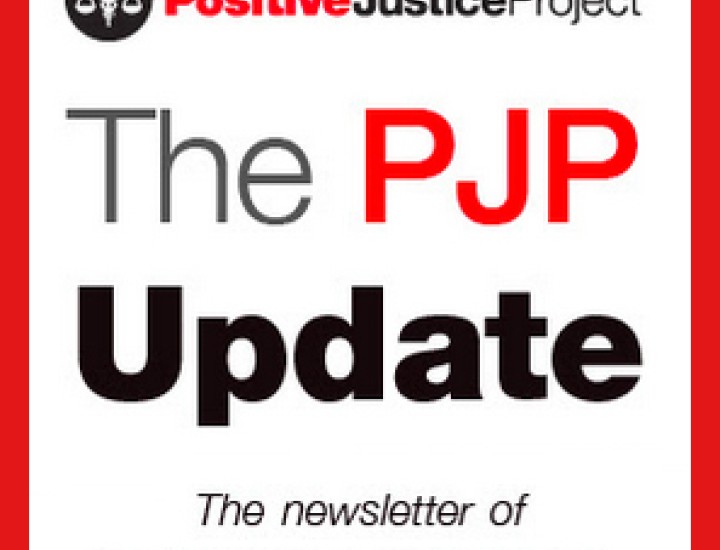In the first statement of its kind, Cook County State's Attorney Anita Alvarez calls for further modernization of Illinois' HIV criminal and national guidelines to limit HIV-related prosecutions under current laws. Alvarez is an inaugural member of CHLP's National Prosecutor's Roundtable on HIV Law and Policy, a joint project with the Association of Prosecuting Attorneys. The State Attorney's office recently forwarded their response to a question from the Windy City Times on her position on HIV criminalization. To read the full statement, see: Influential State’s Attorney Weighs in on Decriminalizing HIV in Illinois
 COLORADO
COLORADO
Members of The CO Mod Squad worked very hard to draft a bill that repeals the criminal laws and moves HIV to the STI codes. The Colorado Department of Public Health and Environment hosted several community forums with Barb Cardell, Kari Hartel, and Arthur Powers to discuss the changes to the law. SN 146 was introduced in the Colorado General Assembly by Senator Pat Steadman and had a first reading in the Senate Judiciary Committee Wednesday, March 16. It is co-sponsored by Rep. Daneya Esgar, who will introduce it in the House, if it makes it through the Senate. Congratulations to the Mod Squad CO!
Next meeting is Tuesday, March 29 from 6:00-8:00pm (MT). (Meetings are the 4th Tuesday of the month.)
If you are interested in information about HIV criminalization or actively participating in the Colorado working group, please contact Barb Cardell at [email protected].

GEORGIA
The Georgia Working Group has decided to introduce a bill for modernizing their HIV criminalization laws in 2017. At the February meeting, members began planning for a face-to-face meeting the first week of May to plan their statewide campaign. This will include building a plan and timeline for coalition building, additional educational events, policymaker and legislative outreach, and developing literature, media and legislative strategy. They will create a master calendar and begin to plan specific events and identify advocates who can commit to specific tasks. At the January and February meetings the group agreed to talking points that can be tailored for individual audiences.
Next Meeting: April 13 at 4:00pm (ET)
If you would like information on HIV Criminalization or are interested in becoming an advocate with the Georgia HIV Criminalization Working Group, please contact Stephen Williams at [email protected].
 LOUISIANA
LOUISIANAIn mid-February, CHLP Executive Director Catherine Hanssens traveled to Baton Rouge to participate in the Louisiana Health Public Health Institute's Stigma Summit, a well-attended gathering of thoughtful Louisianans from a wide range of backgrounds and organizations. Following that, Catherine represented CHLP at a meeti ng organized by Sero, with special shout-outs to Deputy Director Robert Suttle and superb moderator Laura McTigue, who pulled the post-summit meeting together. Under Laura's facilitation, Louisiana ended the day with people, including Dorian Alexander, Shaquita Borden, Gina Brown, Chip Eakins, Darnell Ferrell, Olivia Ford, Deon Haywood, Darlene Robertson, and Nia Weeks, to name a few, committed to research, outreach, communication and more. Pictured are (l-r) Nakita Shavers, Shaquita Borden, Deon Haywood, S. Madisa Moore-O'Neal and Nia Weeks.
ng organized by Sero, with special shout-outs to Deputy Director Robert Suttle and superb moderator Laura McTigue, who pulled the post-summit meeting together. Under Laura's facilitation, Louisiana ended the day with people, including Dorian Alexander, Shaquita Borden, Gina Brown, Chip Eakins, Darnell Ferrell, Olivia Ford, Deon Haywood, Darlene Robertson, and Nia Weeks, to name a few, committed to research, outreach, communication and more. Pictured are (l-r) Nakita Shavers, Shaquita Borden, Deon Haywood, S. Madisa Moore-O'Neal and Nia Weeks.

OHIO
Members of the Ohio Working Group have been having substantive discussions about what changes they would like to see in their Ohio laws. They are learning how complex this process can be -- how the legal meaning of common words can be very different than they are in daily usage, and how many different ways there are to see the same issue. Their respectful discussion and patience with the process is greatly appreciated. They will continue this conversation in March.
Next Meeting: Monday, April 11 at 4:30pm (ET).
If you are interested in information about HIV criminalization or actively participating in the Ohio working group, please contact Stephen Williams at [email protected].

TENNESSEE
At the January meeting, working group members reached consensus on the specific changes they want to make in the Tennessee laws. They have asked Mayo Schreiber, CHLP Deputy Director, to put these changes into cohesive language to share with others as they do outreach and education. On the next call they will create talking points and use those along with the proposed changes to the law in discussions with individuals and groups at the Ryan White Planning Council meeting and the TAPWA meeting in March. The group continues to identify other agencies and individuals to engage in the process.
Jamie Young & Rachel Brooks discussed their concern about increased police activity, arresting people for aggravated prostitution in Shelby County. Lauren will work with them, Scotty & Mayo to set up a separate call to discuss strategies for community response.
Scotty Campbell, Director of Public Policy of Nashville Cares, continues having conversations around the state with individuals and agencies about modernizing the laws. At the next meeting, in addition to discussing feedback from CHLP, the group will brainstorm on others who should be included in these conversations, including key individuals, organizations, legislators, and policy makers, and a timeline for reaching out to them.
Next Meeting: Thursday, March 24 at 11:00am (CT)
If you are interested in information about HIV criminalization or actively participating in the Tennessee working group, please contact Stephen Williams at [email protected].

TEXAS
An HIV Criminalization working group recently formed in Texas, holding its first official meetings in early 2016.
Since formation, group membership has more than doubled with some individuals affiliated with the following organizations from Austin, Dallas, and Houston areas:
1. ACLU-Texas
2. AIDS Arms
3. End AIDS Now
4. Legacy Community Health
5. Office of Pub. Defender
6. Ryan White Planning Council
The group currently is focused on developing consensus on message and goals, while planning strategic first steps to confront the TX assault statutes wrongfully used to arrest, prosecute, and convict PLWH.
It's is an exciting time as this growing group of Texas advocates has real passion to advocate for the marginalized and a deep hunger for effective, long-lasting change in Texas.
Next meeting: Friday, April 15 at 1:00 PM (CT)
If you are interested in information about HIV criminalization or actively participating in the Texas working group, please contact Stephen Williams at [email protected].

WASHINGTON
CHLP's Lauren Fanning is organizing advocates in her home state of Washington to renew modernization efforts for the next legislative session. She is talking to advocates previously involved and inviting some new folks to the table. The plan is to work with the Dept of Health, HIV Planning Steering Committee (which is responsible for overseeing the End AIDS Washington plan) and community stakeholders over the course of 2016 to introduce a bill in 2017. A component of the End AIDS Washington plan identifies the legislature to modernize HIV criminalization laws. It is hoped that leveraging these relationships will strengthen the process.
The first meeting was held March 15.
If you are interested in information about HIV criminalization or actively participating in the Washington working group, please contact Lauren Fanning at[email protected].



 COLORADO
COLORADO 
 LOUISIANA
LOUISIANA






